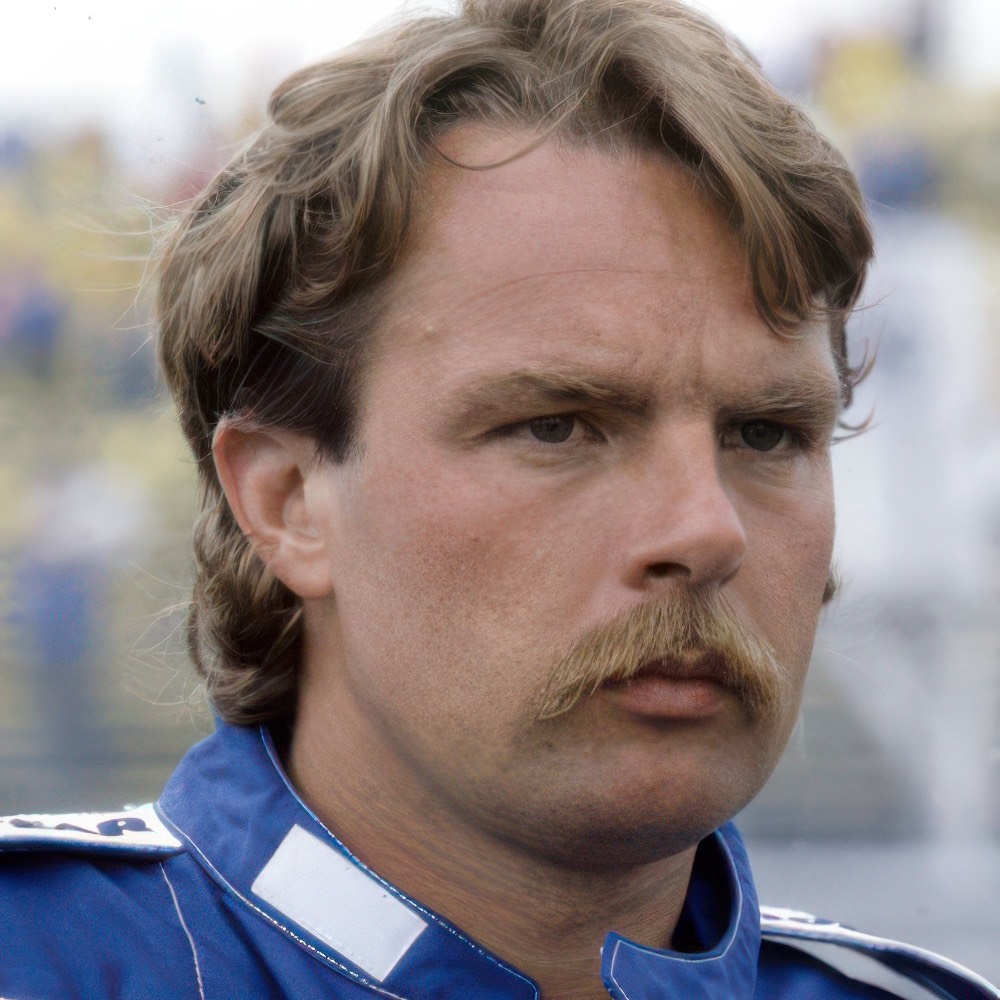
Keke Rosberg
World Championships
1982
Career Statistics
Biography
Keijo Erik "Keke" Rosberg (born 6 December 1948) is a Finnish racing driver who competed in Formula One from 1978 to 1986, best remembered for winning the 1982 World Drivers' Championship in the most unlikely circumstances—capturing the title with just a single victory in one of Formula One's most chaotic and tragic seasons. Born in Stockholm, Sweden, where his Finnish parents were university students, Rosberg was raised in Finland and developed a reputation in junior formulae for aggressive, spectacular driving characterized by dramatic opposite-lock slides and fearless overtaking maneuvers that earned him the nickname "the Flying Finn." Rosberg began his racing career in karting before graduating to Formula Vee in 1972, and after winning the Finnish Championship in 1973, he progressed through Formula Super Vee, where he won the German Championship in 1975 and the European Championship in 1976, establishing himself as Scandinavia's fastest rising talent.
Despite his success, Formula One opportunities remained limited, and Rosberg was already 29 when he made his debut at the 1978 South African Grand Prix with the small Theodore team. After a season with ATS and sporadic drives with Wolf, Rosberg's breakthrough came when he joined Fittipaldi for 1980-1981, where consistent points finishes demonstrated his ability to extract maximum performance from mediocre machinery. For 1982, Frank Williams signed Rosberg to partner Carlos Reutemann in the Williams-Ford FW08, but nobody could have predicted the extraordinary season that would unfold. The 1982 championship proved to be the most open in Formula One history, marked by tragedy, political turmoil, and mechanical unreliability that prevented any driver from dominating.
Gilles Villeneuve was killed during qualifying at the Belgian Grand Prix, Didier Pironi—the championship leader—suffered career-ending injuries at the German Grand Prix, and the turbocharged Brabham-BMWs and Renaults, while devastatingly fast, suffered from chronic unreliability. The FISA-FOCA political war resulted in boycotts and banned drivers, creating further chaos. In this environment, Rosberg's consistency proved decisive. He scored his maiden and only victory of the season at the Swiss Grand Prix (held at Dijon-Prenois in France), and his five additional podium finishes—including second places at the Monaco, Detroit, and Italian Grands Prix—gave him a steady accumulation of points while faster rivals retired or suffered misfortune.
Entering the final race at Caesar's Palace in Las Vegas, five drivers remained mathematically capable of winning the championship, but Rosberg's fifth-place finish was sufficient to clinch the title by five points over Ferrari's Didier Pironi and McLaren's John Watson. Rosberg became the first World Champion from Finland and equaled Mike Hawthorn's record from 1958 for fewest victories (one) in a championship-winning season—a record that stands due to subsequent regulation changes. His achievement demonstrated that in Formula One, consistency and reliability often triumph over raw speed. Rosberg remained with Williams for 1983-1985, establishing himself as a proven race winner with victories at Monaco (1983), Dallas (1984), and Detroit and Australia (1985).
His 1985 season saw him finish third in the championship and score arguably his finest victory at the Australian Grand Prix in Adelaide—a soaking wet race where his wet-weather mastery and fearless car control allowed him to dominate in treacherous conditions, lapping the entire field except second-place Ayrton Senna. For 1986, Rosberg moved to McLaren-TAG to partner reigning World Champion Alain Prost, but the partnership proved disappointing. While Rosberg remained competitive and occasionally challenged Prost, he was unable to add to his victory tally, and at season's end, at age 37, he announced his retirement from Formula One. Rosberg finished his career with five Grand Prix victories, 17 podiums, five pole positions, and 159.
5 championship points from 114 races. After retirement, Rosberg remained involved in motorsport, managing and coaching his son Nico Rosberg from his early karting days through to his eventual 2016 Formula One World Drivers' Championship with Mercedes. This achievement made Keke and Nico only the second father-son duo to both win World Championships, following Graham and Damon Hill. Keke Rosberg is remembered not only as Finland's first World Champion who paved the way for Mika Häkkinen and Kimi Räikkönen, but also as one of the sport's great characters—a hard-charging racer with a spectacular sideways driving style, a bushy mustache that became his trademark, and a refreshingly honest approach to media relations that made him a paddock favorite.
His 1982 championship remains one of Formula One's most remarkable underdog stories, proving that in the right circumstances, a single victory and unwavering consistency can triumph over seemingly superior opposition.